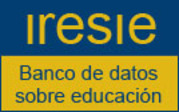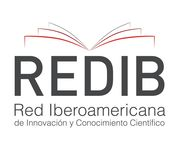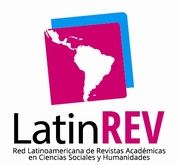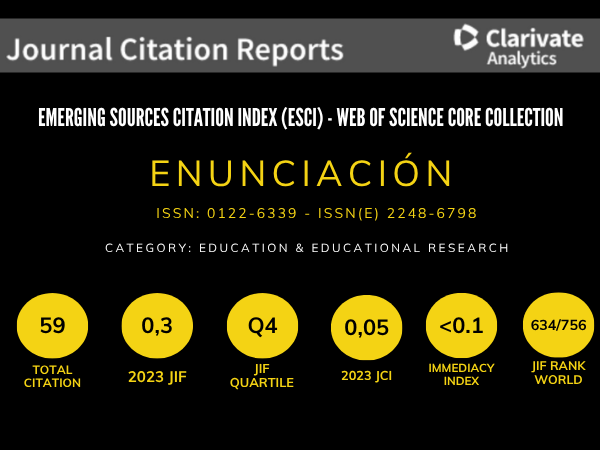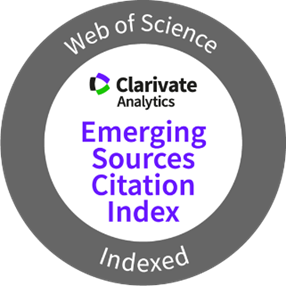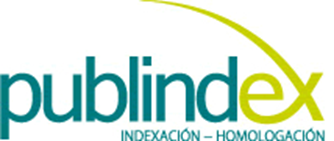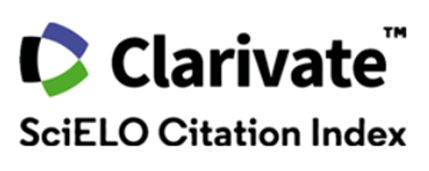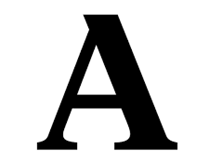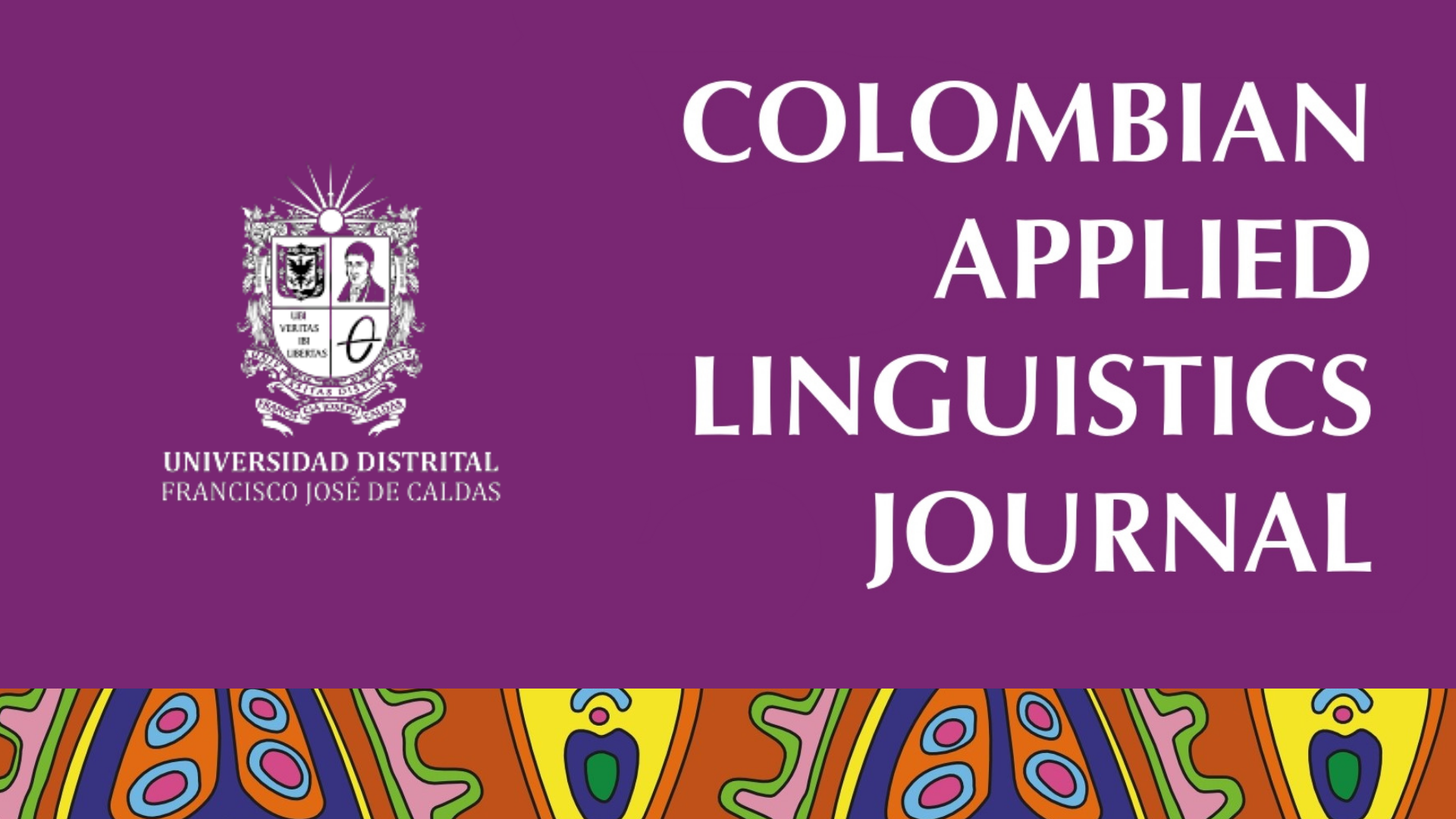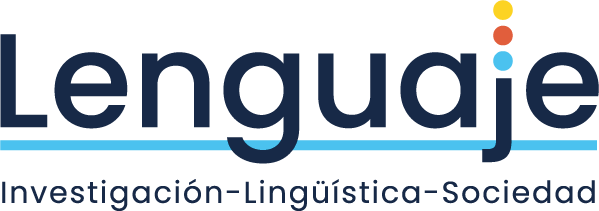About the Journal
Focus and scope
Sponsors
Publication Frecuency
Intellectual Property
Peer Review Process
Estimated time for peer review and publication
Open Access Policy
Statement of good editorial practices and procedures for dealing with unethical behavior
Article processing charges (APCs) and article submission charges
History
Archive
Indexation
Focus and Scope
Enunciación is a scientific journal published by annual, founded in 1996 and edited by the Universidad Distrital Francisco José de Caldas. This publication aims to socialise research products in general language studies, with an emphasis on language sciences, literature and pedagogy, according to the classification of the Organisation for Economic Cooperation and Development (OECD), and seeks to contribute to the consolidation and positioning of the academic community in this area. The journal is oriented towards readers who are practising and trainee teachers and researchers in the area of language pedagogy. Enunciación welcomes articles on the following topics:
- Literature and other languages
- Language, society, and school
- Language pedagogies
- Language and conflict
- Language, media, and technology
The call for papers is permanent and is aimed at teachers, researchers and higher-education students. Article submission in Enunciation must comply with the guidelines available in the Author guidelines. The Editorial Committee, based on the relevance of the contribution and on the concepts of the peer reviewers, decides on the publication of each article.
Enunciación publishes original contributions from national and international researchers in Spanish and English.
ISSN: 0122-6339 (Print).
E-ISSN: 2248-6798 (Online).
ISSN-L: 0122-6339
DOI: https://doi.org/10.14483/22486798
Publication Frecuency
The journal publishes two issues a year: issue 1 to the month of June and issue 2 to the month of December.
Each issue is published when the whole number is ready. Nontheless, articles that are ready in PDF format will be published with the label "Early view", so readers can have access to it but know that that version is not the final one.
We inform our readers, researchers and the academic community that since volume 25 No. 1, (January - June 2020), the journal Enunciación circulates only virtually. During these 24 years of journey, we have built an editorial project that has consolidated the scientific community in the field of language, language, pedagogy and didactics of the mother tongue and we will continue working in this line. The circulation of the digital format, in addition to being in correspondence with the care and sustainability of the environment, allows us to strengthen visibility indexes, and greater access conditions to readers, authors from all over the world, and in general to the academic community of researchers in this field of work, in coherence with the open access policy in which Enuniación is inscribed.
Intellectual Property
The author(s) by submitting your article to Enunciación certify that your manuscript has not been, will not be presented or published in any other scientific journal. By submitting the article, you also accept that for publication you will transfer the rights to the journal, which may disseminate it in print or electronic version.
Along with the online application of your manuscript, you must attach the following format with a digital or scanned signature.
Download here one of the two formats as applicable: one author or two or more authors.
Peer Review Process
All the articles will be subjected to a first analysis of originality trough the software Turnitin. The result of this analysis will be reviewed by the journal's Editorial Committee, which will decide if the article is approved to start the peer review process.
It is important to note that manuscripts will not begin the peer review process, or will be returned to their authors for modification, if:
- The topic does not correspond to the thematic field of the journal.
- It does not follow the guidelines for authors.
- The author(s) has already published in some issue of the volume to which it applies in the journal.
- The Format for authorisation and guarantee of first publication is not send to the journal.
- The article is not derived from a research process.
If the document meets the above criteria and is approved by the Editorial Committee, it will be sent for academic peer review through the double-blind procedure, in which the confidentiality of both the author(s) and the reviewers will be preserved. The criteria to be evaluated are:
- Form and content.
- Relevance of the topic.
- Adequate research problem with the selected thematic subject.
- Solidity and sufficiency in the theoretical references.
- Clarity and pertinence in the choice of the methodology used.
- Internal consistency between the theoretical perspective, objectives, methodology, interpretations, results and conclusions.
From the acceptance of the invitation, the peer review has twenty (20) calendar days to issue their concept. The academic peer may suggest publishing without any modification or publishing after modifications, requesting to reevaluate the article after modifications or rejecting it (not publishing). In case of differences in opinions, the Editorial Committee will designate a third evaluator to solve the conflict.
The editorial assistant will be in charge of informing the author(s) of the opinion and the suggestions of the evaluators. The authors will have to adjust the manuscript within a time established by the editorial team. Finally, once the reviewers verify the changes, they issue a final decision on the article, which will be communicated to the Editorial Committee and the authors of the text.
Advice
Universidad Distrital Francisco José de Caldas and therefore the journal Enunciación, since 2015, began to use the Turnitin tool to evaluate the degree of originality of the articles presented and prevent plagiarism.
Estimated time for peer review and publication
The estimated time between receipt of the article and the first response by the evaluators is 8 weeks. The estimated time between the acceptance of the article and its publication is 16 weeks.
Sponsors
The journal is funded by the Oficina de Investigaciones of the Universidad Distrital Francisco José de Caldas (Bogotá, Colombia).

Open Access Policy
Enunciation is an open-access publication, with no financial charges for authors or readers. As of January 1, 2021, the contents of the journal are published under the terms of the Creative Commons Attribution-NonCommercial-ShareAlike 4.0 International License., under which others may distribute, remix, retouch, and create from the work with non-commercial purposes, give the appropriate credit and license their new creations under the same conditions.
The copyright holders are journal Enunciación. It retain all rights without restrictions, respecting the terms of the license as to consultation, downloading and distribution the material.
When the work or any of its elements are in the public domain according to the applicable law in force, this situation will not be affected by the license.
Statement of good editorial practices and procedures for dealing with unethical behavior
Statement of good editorial practices
The Editorial Committee of the journal Enunciación is committed to high ethical standards and good practices in the dissemination and transfer of knowledge to ensure rigor, integrity and scientific quality. It is also committed to preventing fraud, plagiarism and / or that particular interests compromise ethical standards and intellectual property.
All authors must submit original manuscripts, unpublished manuscripts and manuscripts of their own authorship declaring such characteristics at the time of submitting their work for consideration by the editorial board. Likewise, the journal is committed to ensuring a fair and objective review of manuscripts, for which it uses the double-blind evaluation system.
Therefore, it takes as a reference the procedures, ethical standards and guidelines for good ethical behavior in serial scientific publications of the Committee on Publication Ethics (COPE).
Editor responsibilities
Acting balanced, objectively and in a fair manner, without any sexual, religious discrimination, political, origin, or ethics of the authors, using correct guidelines handed down in the Constitution of Colombia in this regard.
Consider, edit and publish academic contributions only for their academic merit without taking into account any commercial influence or conflict of interest.
Be willing to publish corrections, clarifications, retractions and apologies when necessary.
Preserve the anonymity of the reviews.
Follow proper procedures to resolve any ethical complaints or misunderstandings, or conflict of interest. The publisher and the editorial board will act in accordance with the regulations, policies and procedures established by the Universidad Distrital Francisco José de Caldas and in the Agreement 023 of June 19, 2012 of the Academic Council, through which the editorial policy of the University is regulated and current regulations on the subject in Colombia. In no event shall the publisher(s) encourage such misconduct, nor shall they knowingly permit such misconduct to occur. The authors will have, in any event, an opportunity to respond to possible conflicts of interest. Any complaint must be supported with documentation and media to check improper conduct.
Reviewers responsibilities
Contribute objectively to the process of evaluation of manuscripts submitted for consideration in the journal “Enunciación”, collaborating in a proper manner with the improvement of the quality of these original scientific research products.
Maintain the confidentiality of the data supplied by the publisher, the editorial committee or authors, making proper use of such information by the means that are provided. However, it is your decision to retain or copy the manuscript in the evaluation process.
Report the editor and the editorial committee in a proper manner and on time, when the content of any academic contribution show elements of plagiarism or substantially resembles other products published or in a publishing process.
Report any possible conflict of interest with an academic contribution, institutional, financial partnerships or other, between the reviewer and the authors. For such case, and if necessary, withdraw your services in the evaluation of the manuscript.
Authors responsibilities
All authors must have contributed significantly to the research submitted for the journal's consideration and be willing to take part in the peer review process.
Submit the article according to the guidelines stated by the journal, including a list of bibliographic references.
Inform, if applicable, about the financial support received during the research.
Keep accurate records and support data and data analysis related to the manuscript submitted for consideration in Enunciación. When the editor or the editorial board of the journal require this information (on reasonable grounds) authors should provide or facilitate access to this. Upon being requested, the original data will enter a chain of custody to ensure the confidentiality and protection of information by the journal.
Confirm through a letter of originality (format established by the journal) that the academic contribution under evaluation is not being considered or has not been submitted or accepted in another publication. If part of the content of a contribution has been published or presented in other media, authors should recognize and quote the respective sources and academic credits.
They must also submit a copy to the editor and the editorial board of any publication that may have overlapping content or closely related to the contribution under consideration. Additionally, the author must recognize the respective claims of the material reproduced from other sources. Those elements such as tables, figures or patents, which require special permission to be reproduced must be accompanied with a letter of acceptance of reproduction by the owners of the copyright of the product used.
Declare any potential conflict of interest that may exert undue influence at any time of the publishing process.
Carefully review the final art of the contribution, prior to the publication in the journal, reporting any errors that should be corrected.
University responsibility
The Universidad Distrital Francisco José de Caldas, in whose name the journal Enunciación is published and following the provisions of the Agreement 023 of June 19, 2012 of the Academic Council, by which the Editorial Policy University is regulated, will ensure that ethical standards and good practices are fully implemented.
Procedures for dealing unethical behavior
Severities of unethical behavior
- Self-citation upper of 20% of the manuscript.
- Plagiarism of ideas from another author and/or source of one or more pages, tables and/or figures and/or photographs.
- Use of false identification bibliographical sources or erroneous data that alter the veracity of the article.
- Submission of the manuscript to another journal simultaneously.
- Presenting false credentials of the authors.
- Not having the authorization of all the authors who have participated in the research or academic work to be published.
Any of these faults would result in the embargo of publication
Identification of unethical behavior
Unethical behavior by the authors will be examined first by the editors and the Editorial Board of the journal.
Unethical behavior may include, but will not necessarily be limited to, the provisions of the statement of good practice and ethical standards of the journal Enunciación and the Universidad Distrital Francisco José de Caldas in this area.
Information on an unethical behavior must be presented in writing and be accompanied with tangible, reliable and sufficient evidence to initiate an investigation process. All complaints should be considered and treated in the same way, until a decision or succesful conlusion is adopted.
The communication of an unethical behavior should be reported to the editors of the journal and the editorial board accordingly. In cases where the above actors do not an appropriate response in a decent period of time, the unethical behavior must be reported to the Universidad Distrital's publications committee.
Investigation
The first decision must be made by the editors, who must consult or seek advice from the Editorial Committee and the Publications Committee, as considered appropriate. The research evidence will be kept confidential.
An unethical behavior, with editors considered minor, can be treated between them and the authors, without further consultation. In any case, the authors should have the opportunity to respond to allegations made by unethical behavior.
An unethical behavior of a serious nature should be notified to the institutional entity where the author is working or the entity supporting the research. The editors, in consideration of the Universidad Distrital, must make the decision whether or not to involve sponsors, either by examining the evidence available or through further consultations with a limited number of experts.
Results (in increasing order of severity, may be applied separately or in combination)
Report authors' or reviewers' misconduct or improper practice that is contrary to the ethical standards set by the journal.
Send a communication to the authors or reviewers to indicate the lack of ethical conduct, with evidence to support the identification of the misconduct, and serve as a precedent for good behavior in the future.
Remove the article from the publication of the journal and inform the author about the decision made by the Editorial Committee supported by the ethical standards set.
As a penalization, the author won't be able to publish in the journal for a specific amount of time, five years.
Report the case and the outcome of the investigation to the competent authorities, if the good name of the Universidad Distrital is compromised.
Article processing charges (APCs) and article submission charges
Enunciación does not charge for the postulation, evaluation and publication of the articles submitted, since the Universidad Distrital Francisco José de Caldas assumes the expenses related to edition, management and publication. The peer evaluators do not receive any economic retribution for their valuable contribution. The work of all the actors mentioned above is understood as a contribution to the strengthening and growth of the research community in the field of sciences of languages.
History
Enunciación was born in 1996, led by the Grupo de Investigación Lenguaje, Identidad y Cultura (Research Group Language, Culture and Identity) of the Universidad Distrital Francisco José de Caldas. Since then, the journal has become a space for academic and pedagogical reflection on language, whose main intention is to contribute to the generation of academic community in this field.
Archive
This journal uses the LOCKSS system to create an archive distributed among participating libraries, allowing those libraries to create permanent archives of the journal for preservation and restoration purposes.
Indexation
The journal Enunciación is related in the following indexes, databases, and directories.

This journal is licensed under a Creative Commons Attribution-NonCommercial-ShareAlike 4.0 International License.












